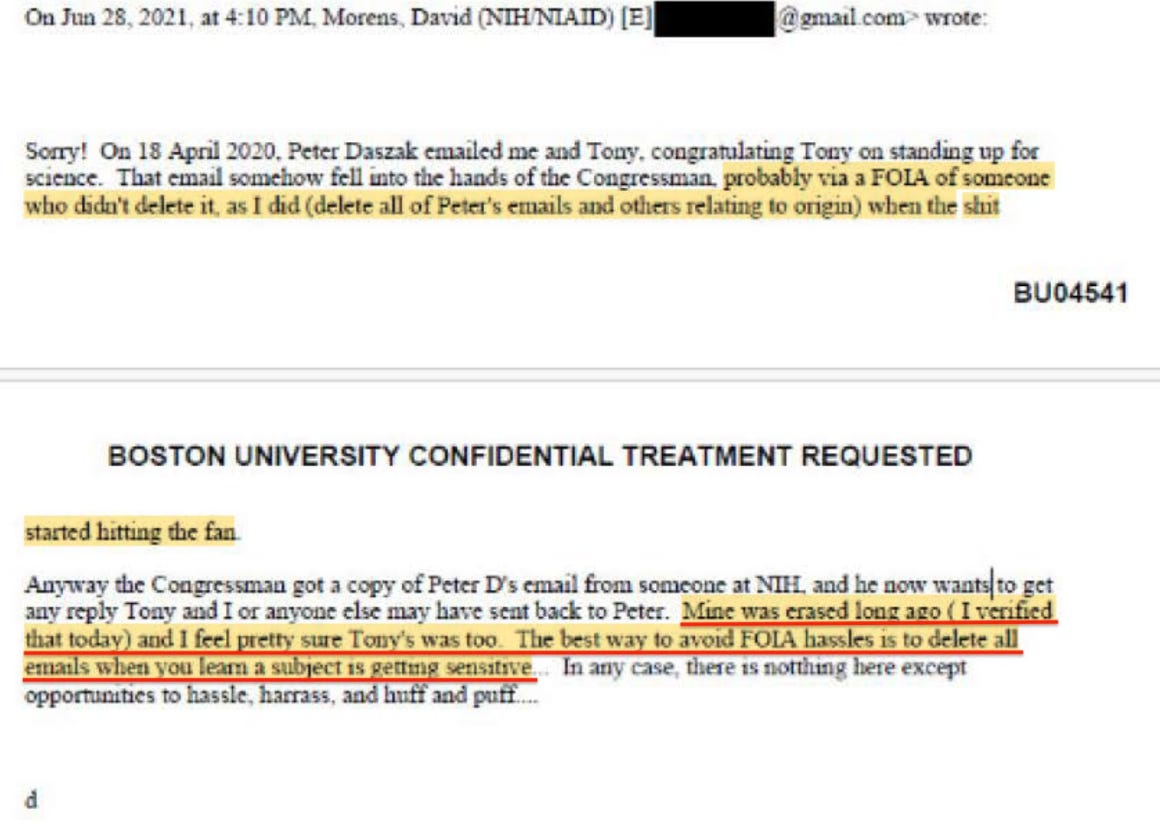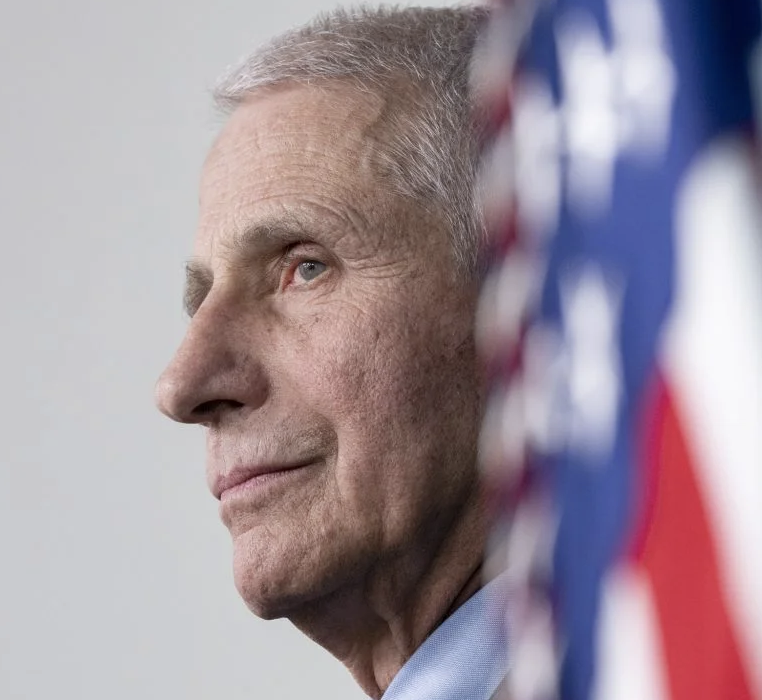Whether justice will be delivered to those involved in the effort to avoid oversight and deflect scrutiny from EcoHealth Alliance’s research at Wuhan is uncertain. What’s clear is that the NIH is a broken institution.

The effort to get to the bottom of the origins of COVID-19 is more than four years in the making. And while shockingly little progress has been made, evidence suggests that a plot to conceal answers is unraveling before our eyes.
The latest evidence comes from David Morens, a top adviser to former National Institutes of Health Director Anthony Fauci, who last month testified before the House’s Select Subcommittee on the Coronavirus Pandemic about emails he sent to colleagues concerning Freedom of Information Act requests.
“I learned from our FOIA lady here how to make emails disappear after I am FOIA’d but before the search starts,” Morens wrote. “So I think we are all safe.”
While questioning Morens, Democrats and Republicans alike expressed shock and dismay over the emails as well as Morens’s repeated excuses and dissembling.
“Sir, I think you’re going to be haunted by your testimony today,” said Rep. Kweisi Mfume (D-MD).
Morens may not be the only one haunted.
In several emails, Morens referenced “Tony,” Dr. Fauci, with whom he claimed to have a “secret backchannel.”
“I can either send stuff to Tony on his private gmail or hand it to him at work or at his house,” Morens wrote to Peter Daszak.
Daszak, the president of EcoHealth Alliance, was the recipient of a multimillion-dollar NIH grant to conduct gain-of-function research on coronaviruses at the Wuhan Institute of Virology, the lab many government agencies, including the FBI, believe was the likely source of COVID-19.
The fact that EcoHealth Alliance was conducting risky experiments on coronaviruses at Wuhan with NIH dollars, something Fauci had repeatedly denied, explains why the NIH might have felt a need to deliberate in secret. Emails say that the NIH was working to protect EcoHealth Alliance’s and the NIH’s reputations.
“Peter, from Tony’s recent numerous comments to me … they are trying to protect you, which also protects their own reputation,” Morens wrote.
At least for some, this protection apparently extended to hiding communications from the public and deleting correspondences to conceal the truth from the public.
Rep. Debbie Lesko (R-AZ) read aloud no fewer than half a dozen emails written by Morens in which he discussed not just how to avoid FOIA but how to “erase” emails so they could not be retrieved.
Just who will be implicated in the fallout from the apparent conspiracy to hide the truth is unclear, but it’s not a trivial question, considering how the matter has been referred to the Department of Justice for criminal investigation. (Willfully avoiding FOIA is a federal crime.)
At least one person, Sen. Rand Paul (R-KY), who has frequently sparred with Fauci, said the conspiracy goes higher than Morens.
“I believe Anthony Fauci was in charge of the entire conspiracy,” Paul said.
For his part, Morens told lawmakers he had no recollection of talking with Fauci about emails. Evidence, however, suggests that Morens is either lying or suffering from a fuzzy memory.
In one June 2021 email to a recipient whose name is redacted, Morens discussed an email correspondence between himself and Daszak that he “erased long ago,” adding, “I feel pretty sure that Tony’s was too.”

How Morens could be “pretty sure” Fauci had deleted the email in question without ever having discussed emails with the former NIH director is a question that investigators might ponder.
Whether justice will be delivered to those involved in the effort to avoid oversight and deflect scrutiny from EcoHealth Alliance’s research at Wuhan is uncertain. What’s clear is that the NIH is a broken institution.
The relationship between Daszak and Morens reeks of cronyism, and it includes Morens editing grant application materials for Daszak and then wondering if any “kickbacks” would be coming his way.
It’s easy to believe that the worst part of big government is its inefficiency. “If you put the federal government in charge of the Sahara Desert,” Milton Friedman famously quipped, “in five years there’d be a shortage of sand.”
Yet the costs of government gigantism go beyond dollars and cents. It’s now apparent that the NIH, freed from the market forces that ensure scarce resources are allocated efficiently, was spraying money around in reckless fashion without proper oversight.
With its $47 billion budget, the NIH was doling out grants to fund research it clearly should not have been funding. And instead of coming clean following the emergence of COVID-19, officials at the NIH leveraged its power and resources to silence critics, marginalize other scientists, and accuse anyone who opposed NIH policies of being “anti-science.”
Fortunately, the political cover the NIH has enjoyed up to this point seems to be vanishing.
“It is not anti-science to hold you accountable,” Rep. Raul Ruiz (D-CA), the panel’s top Democrat, flatly told Morens.
We’ll see whether these words also apply to Fauci, who is scheduled to appear before Congress on June 3. The wheels of justice turn slowly, they say. We may soon learn whether, in Washington, they still turn at all.
This article originally appeared in The Washington Examiner. By Jon Miltimore
Jonathan Miltimore is the Senior Creative Strategist of FEE.org at the Foundation for Economic Education.
